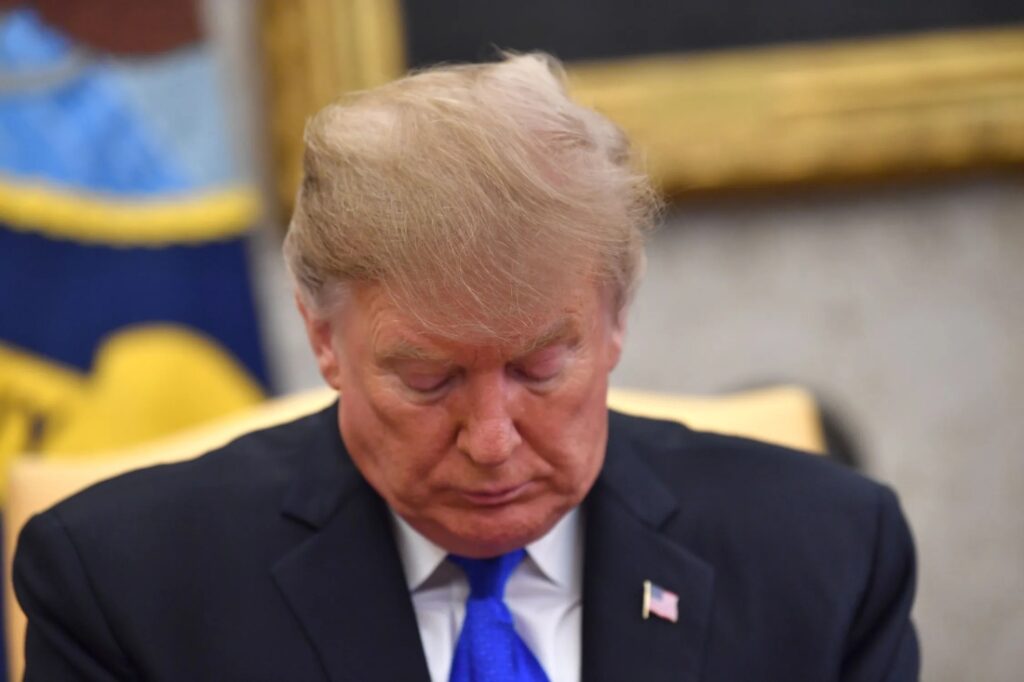One of the refrains from President Trump’s antagonists is that he is never held accountable by the legal system. If you examine his record, however, you will find that he tends to lose in court on a regular basis. In virtually every case Trump or his people filed in conjunction with the outcome of the 2020 presidential election, Trump lost.
He had previously lost in the Trump University case and had to pay a large fine. He lost in the Trump Foundation case and had to pay a large fine. And now, in the sexual assault case brought by E. Jean Carroll, Trump lost again – although the jury did absolve him from the more serious rape charge.
Trump’s defense was that he did not know the woman … never violated her … and was not involved in the dressing room assignment. While it may not have been rape, the jury clearly believed that he was in that department store changing room with Carroll and acted badly. They also found that his public comments about Carroll defamed her. He was fined more than $5 million for both findings.
Having covered innumerable court cases in my career, I believe in juries. While Trump claims jury prejudice, I am inclined to discount that as a significant reason for the verdict – especially since this was a unanimous decision. It is impossible – as an outside observer – to know all the arguments and details that were provided to the jury. That is why I tend to trust jury verdicts.
Apart from the outcome, there were a number of things that were disturbing about this case.
- The case was brought because the law was changed to essentially eliminate the Statute of Limitations in sexual assault cases. The old law would have prevented such an old case (30 years) from being filed. There is a good reason for Statutes of Limitations – especially in civil cases. The Trump finding notwithstanding, I see the elimination of the Statute as corrosive to the American justice system.
- Carroll charged Trump with rape. If the jury did not believe her accusation, why did they believe the lesser charge of sexual assault – more commonly referred to as molestation? The entire case was based on what she said/he said. Yet, the jury believed Carroll was truthful in one accusation but not in the more serious one. I find that to be a bit schizophrenic.
- The testimony of the other women who claim that Trump had sexually abused them – and the access Hollywood recording – are the types of testimony and evidence that are generally disallowed in court since the primary purpose is to prejudice the jury. Admitting that testimony and evidence were particularly egregious since none of the women testifying had filed criminal charges or lawsuits. The judge, in this case, eliminated one of the standard protections a defendant has in court. If there is a successful appeal, it may be on this issue.
- In the final days of the trial, the judge issued a gag order on Trump. I have never been a fan of court-ordered gag orders. High visibility cases – especially political cases — are being tried in both a court-of-law and in the court-of-public-opinion. The gag order prevents the defendant from pressing his or her case in public even as political opponents and adversarial media are going public with the prosecution’s arguments – even rendering “verdicts” on the defendant’s guilt.
(In Trump’s case, I think his public statements were not helpful to his defense. He tends to shoot himself in the foot when he shoots off his mouth. But I think that is his right.)
- Did Trump’s lawyers use the best strategy? Should he have testified? Most legal observers seem to believe it was a mistake for Trump not to at least appear in the courtroom – and even to not testify. His lawyers may have been concerned about what Trump might have said under cross-examination. The Trump lawyers produced no corroborating witnesses. Several media legal experts were critical of the defense work.
Apart from the legal nuances of the case, the political question is how this will affect Trump’s political future. He will be dealing with this case well into the presidential election season – with the prospect of more trials and more verdicts.
These cases may not make much difference. In my judgment, Trump’s only chance of winning the General Election is if President Biden is the opponent and Kamala Harris remains on the ticket. In 2016, many voters complained that they were presented with a choice of two unpopular candidates. If it is a rematch between Trump and Biden in 2024, that sentiment will be significantly deepened.
Conversely, if Biden is the Democrat standard bearer in 2024, his only chance of winning reelection is to have Trump as an opponent. While Biden is the odds-on favorite to be the Democrat nominee, that may not be the case with Trump.
Have you come across any voters who do not already know how they will vote when it comes to Trump or Biden? I have not. It may be that the sexual assault case – or any of the other cases – will not change the future outcome for Trump. There are not a lot of changeable minds among voters when it comes to Trump – or Biden, for that matter. That is even true among independents.
In politics, the court-of-public-opinions is more important than a court-of-law because voters cast ballots on what THEY believe – not what juries decide. At this juncture, I rate Biden with a better than 50/50 chance of being the Democrat nominee and Trump with less than a 50/50 chance of carrying the standard for the GOP – and these law cases may be the least important reasons.
So, there ‘tis.
